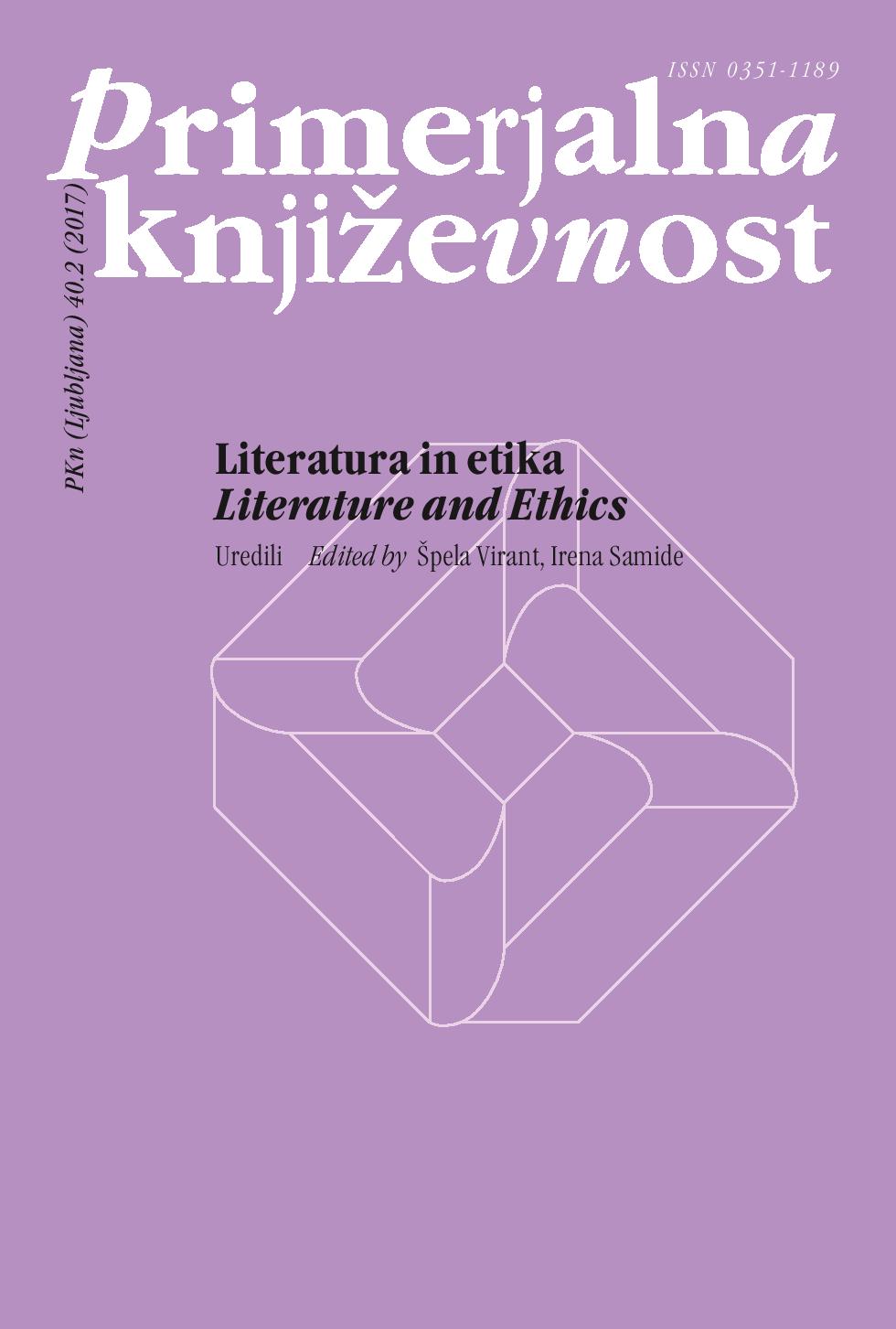Ethics and Aesthetics Between Profanity and Numinosity
Keywords:
literature and ethics, literary criticism, ethics and aesthetics, anthropocentrism, profanity, numinosityAbstract
The relationship between ethics and aesthetics has differed throughout their long history. For most of the premodern era they were closely linked, but in modern and postmodern societies the relationship between them is becoming unclear and contradictory. This paper addresses the profane concept of aesthetic autonomy, which in modern societies has developed as a kind of side effect of the anthropocentric idea of the subject’s autonomy. – The position which the modern subject has assumed is fundamentally characterized by a semantic openness arising from the variability and flexibility of cognitive self-organization. On the one hand, this openness is an advantage, as it allows for a greater adaptability in dynamic environments; on the other hand, it is also a disadvantage, as it hinders the establishment of a consensus and stable conditions. Ethics and aesthetics are trying to resolve this problem in two different ways: the former is testing the limits of the potentials of openness by means of non-pragmatism, while the other is limiting these potentials through the pragmatism of binding normative systems. However, both pay a price: aesthetics loses its influence on the social systems which follow a different logic, while ethics, which cannot do away with the fundamental openness of an autonomous subject, is now itself marked by arbitrariness. – At this point it is necessary to turn away from the symptoms and address the cause of the problems: the logic of autonomous subjectivity. A detailed consideration initially shows that the subject’s taking possession of the initial condition is untenable, since the point of self-awareness can only be the result of processes which precede it and not vice versa. Nothing originates in us – except nothingness itself; on its basis, even the category of existence becomes arbitrary, and in this contradiction, anthropocentrism undergoes its ultimate dismantling. Our view is directed towards something greater than existence and non-existence. We must bid farewell to being the starting point. – It first seems that the problem of arbitrariness has gotten worse. In front of us there grew an openness which we cannot comprehend, let alone reduce to a manageable degree. However, it is also here that a solution arises: we can neither overcome the openness by endlessly making use of its potentials nor by limiting it, but instead by accepting its absoluteness. When the subject comprehends that the comprehension comes entirely from the world which he or she is in the process of comprehending, his or her horizons open up to the world from which he or she originated, as well as to that from which the world originated. To an openness which opens once again. To a not-empty emptiness. This absolute equalization of all with all is the numinous foundation of ethics and aesthetics. In it, the relationship between what we are and what we are not is (in a way that cannot be exceeded) marked by the principles of deliverance and non-distinctiveness.References
Allan, Kenneth. Contemporary Social and Sociological Theory: Visualizing Social World. Thousand Oaks, CA: Pine Forge Press, 2006.
Cleermans, Axel. »The Radical Plasticity Thesis. How the Brain Learns to Be Conscious«. Frontiers of Psychology (2011): 59–70.
Foerster, Heinz von. »Responsibilities of Competence«. Journal of Cybernetics 2.2 (1972): 1–6.
Glasersfeld, Ernst von. Wissen, Sprache und Wirklichkeit. Arbeiten zum radikalen Konstruktivismus. Braunschweig: Vieweg, 1987.
Hölderlin, Friedrich. »Patmos«. Sämtliche Werke. Kleine Stuttgarter Ausgabe. 2. zv. Ur. Friedrich Beissner. Stuttgart: Cotta, 1953. 191–193.
Kocijančič, Gorazd. »O rojstvu ethosa«. Religija in nasilje: eseji in razprave. Ur. Vasko Simoniti, Peter Kovačič Peršin, Jan Assmann. Ljubljana: Fakulteta za družbene vede: Revija 2000, 2008. 195–214.
Kordeš, Urban. »Negovanje netrivialnega«. Primerjalna književnost 35.2 (2012): 41–52.
Kos, Dejan. Evangelij bližine. Ljubljana: KUD Logos, 2015.
Luhmann, Niklas. Ökologische Kommunikation. Kann die moderne Gesellschaft sich auf ökologische Gefährdungen einstellen? Opladen: Westdeutscher Verlag, 1986.
Roth, Gerhard. Fühlen, Denken, Handeln. Wie das Gehirn unser Verhalten steuert. Frankfurt ob Majni: Suhrkamp, 2003.
Schmidt, Siegfried J. Die Selbstorganisation des Sozialsystems Literatur im 18. Jahrhundert. Frankfurt ob Majni: Suhrkamp, 1989.
Snoj, Vid. »O hipostazi in drugi hipostatiki«. KUD Logos (2016). Splet 16. 12. 2016.


